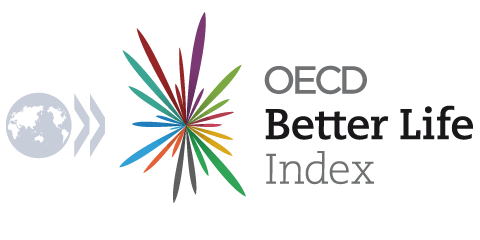The Meaning of Better Lives
We all want a better life, but what does this mean, and how to measure it? We know that happiness and well-being are not just a question of GDP and that we also need to take into account elements such as education, your household’s income, standard of housing and access to vital elements such as clean water and breathable air.
©Thinkstock
The OECD and its partners have been looking at what measuring better lives means in the 21st century for almost 10 years, and will be sharing the latest developments at a major conference this week in New Delhi. We asked some of the OECD experts what measuring better lives means to them:
Rolf Alter (OECD Director for Public Governance and Territorial Development) says – “For me measuring better lives is a journey. People, policy makers, and experts gather to better understand the expectations and hopes of people, and the opportunities to do something about it together. “
Romina Boarini (Head of the OECD Monitoring Well-Being and Progress Section) says – “Going towards better lives means expanding people’s opportunities to chose the life they would like to live. Measuring better lives means measuring these opportunities, whether these are evenly shared among people today and over time.”
Nicholas Bridge (Ambassador & Permanent Representative of the UK to the OECD) says – ”It’s about measuring what really matters to people, and making that the central basis for policy.”
Martine Durand (OECD Chief Statistician) says – “Measuring better lives starts with understanding the key factors driving individual and society’s well-being. It then requires developing robust statistical information on what matters most to people. Finally, it is about using this information effectively to design and implement better policies.“
Stefan Flückiger (Permanent Representative of Switzerland to the OECD) says – “Measuring Better Lives Means” giving convincing arguments to ourselves, our governments and our companies that looking at the same problem in a different way can produce surprising insights and better policies.”
Anthony Gooch (OECD Director Public Affairs and Communications) says – “Better lives is about deepening our collective understanding of what matters to us as human beings, what provides us with our fundamental sense of well-being and what brings quality to our lives in today’s day and age. Efforts to capture and measure this are a fundamental element in empowering citizens the world over to convert their aspirations for better lives into reality.”
Barbara Ischinger (OECD Director for Education) says – “Measuring better lives means measuring what and how individuals learn in school – and beyond – to equip them to lead full, productive lives.”
John Martin (OECD Director for Employment, Labour and Social Affairs) says –“Measuring better lives implies reaching agreement on the key elements that make for a better life, devising ways of quantifying them and linking them eventually to policies that will increase the opportunities for more people to enjoy better lives”.
Marco Mira D’Ercole (Head of progress measurement division) says – “Measuring people’s life implies re-considering the distinction between means and ends. Most economists will acknowledge, when pressed, that economic production is, at best, only a means to achieving some higher level goals. These goals are expression of some notion of the “good life”. While there is no single representation of the “good life”, some basic ingredients are shared across cultures and continents. The dimensions put forward by the OECD are an attempt to put forwards a range of outcomes that could appeal to people around the world.”
Joaquim Oliveira Martins (Head of the OECD Regional Development Policy Division) says – “Better lives means being able to access jobs and income, environmental quality and a good social environment in the places where people live. Insofar as these three dimensions will remain largely disconnected across space, well-being will also remain an average concept with limited impact on individual people’s lives.”
Mario Pezzini (OECD Director of the Development Centre) says – “Measuring well-being means a shift in the way we look at development, one which takes into account disparities rather than averages. It means measuring what matters to people lives and finding the gaps in order to better focus on improving current quality of life while ensuring a sustainable future.”
Monika Queisser (OECD Head of Social Policy) says – “Better lives means taking the needs, wishes and aspirations of all generations, from young children to the elderly, on board when making policy.”
Conal Smith (OECD Leader on the development of international guidelines on the measurement of subjective well-being) says – “Measuring better lives means choosing to measure those things that we value in order to avoid simply valuing those things that we happen to measure. This implies measuring those aspects of quality of life that are important, not just those that are easiest to quantify.”
José Manuel Viegas (OECD Director of International Transport Forum) says – “Better lives certainly include safe access to jobs, health, education, shopping and leisure, for all population segments. This requires integrated land use / transport planning, in parallel with adequate transport policies that promote efficient and equitable provision of infrastructure and regular services plus a range of measures that are necessary to ensure higher levels of road safety. For all these aspects regular measures can be made based on easily understandable indicators, allowing comparisons over time for the same city and transversally among cities.”
Find out more:
See OECD Secretary General Angel Gurría’s message on measuring better lives:
http://www.oecdindia.in/angel-gurria.html
4th OECD World Forum – 16 to 19 OCTOBER 2012, New Delhi
“Measuring Well-Being for Development and Policy Making”
http://www.oecdindia.in/


Comments